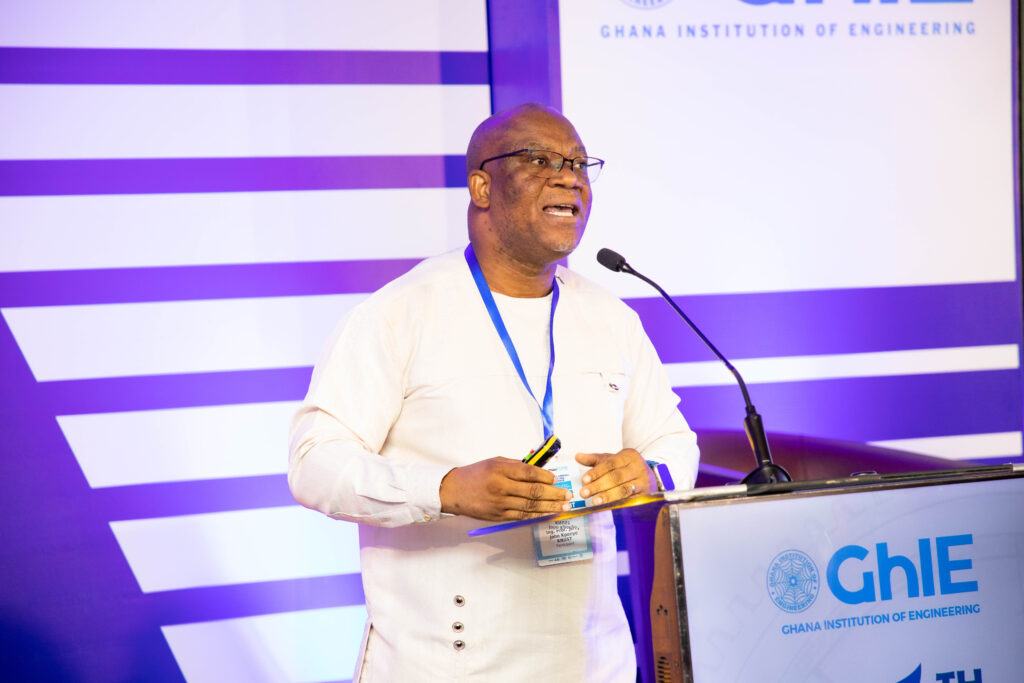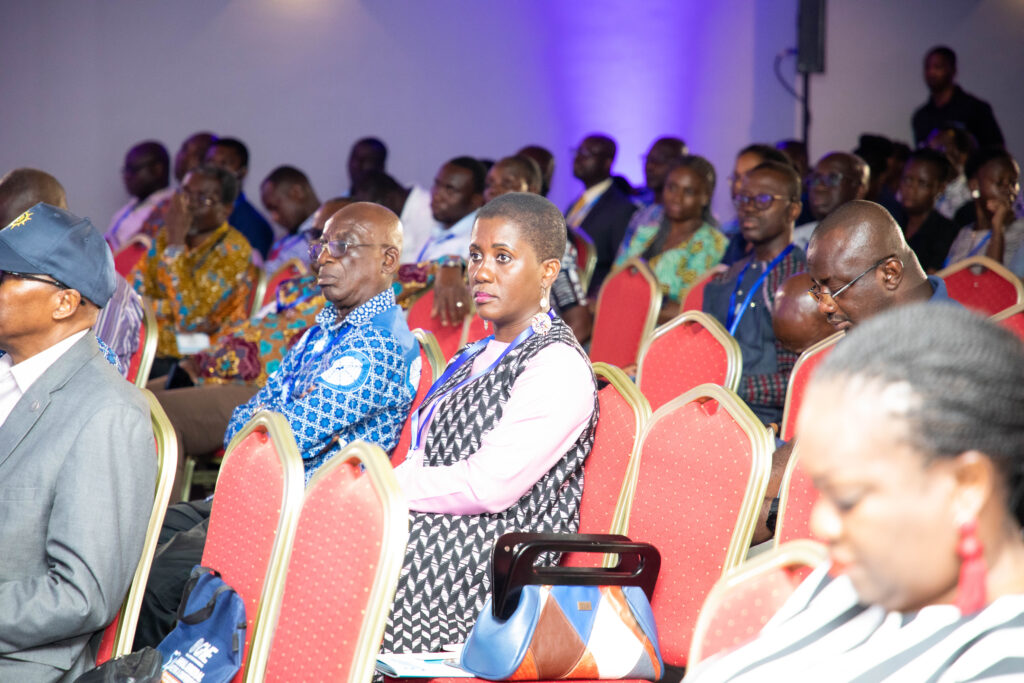In his presentation on Artificial Intelligence (AI) and the future of Engineering in Ghana, Prof. Jerry John Kponyo, Principal Investigator and Scientific Director of the Responsible Artificial Intelligence Lab (RAIL), indicated that the 4th Industrial Revolution is a digital and an AI revolution where AI must cut across all engineering fields. He made this presentation at the Ghana Institution of Engineering (GhIE) 54th Annual General Meeting and Conference themed, “Engineering a Resilient Future: Innovative Solutions for a Sustainable Ghana” on 20th March 2024 in Accra.
Prof. Kponyo defined AI as an array of technologies that rely on algorithms to ‘think’ or ‘act’ to solve a problem. He explained generative AI as a type of AI that creates new content and ideas, including conversations, stories, lectures and reports.
Emphasising the importance of non-biased and well-representative data to the AI pipeline, Prof. Kponyo advocated for the need for Afrocentric datasets in large language models. He said most of the data utilised to train models come from Western sources, which creates bias and lack of inclusion in AI solutions.

He noted that AI can impact the economy through job creation, transforming old jobs into new fields, and promoting remote jobs through global competitiveness.
Exploring the role of AI in the future of engineering, he said AI algorithms can assist in designing and optimising complex systems, generative design, predictive maintenance, energy efficiency and sustainability, simulation and modelling, and healthcare engineering.
“The future of engineering is closely intertwined with the rapid advancements in AI”.
Addressing ethical considerations, he said that engineers must address ethical issues, bias in AI algorithms, privacy concerns, and transparency as AI becomes more pervasive.
“Responsible engineering involves designing AI systems that align with societal values and respect human rights.”
He mentioned three key enablers for AI: infrastructure, data and talent. He advocated for African countries to focus on these three areas to create a conducive environment for AI to thrive. He also discussed the need for a National AI Strategy to guide the responsible use of AI.
Prof. Kponyo said Universities and training programs are incorporating AI courses into engineering curricula, and the KNUST College of Engineering will roll out a course on AI for All first-year engineering students.
He highlighted the AI projects worked on in RAIL in health, agriculture, energy, and the ethical and responsible use of AI and AI solutions for differently-abled persons.
He also introduced the RAIL Robotics Club for the JHS/SHS initiative and the SHECodes club initiative for female students in KNUST.
“AI is reshaping engineering by enhancing design, improving efficiency, and enabling sustainable solutions. Engineers who embrace AI will create a better, smarter future for all.”
